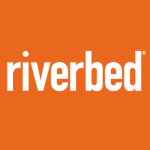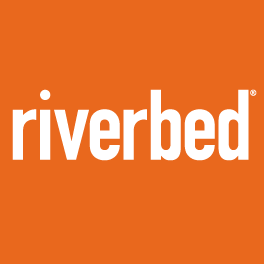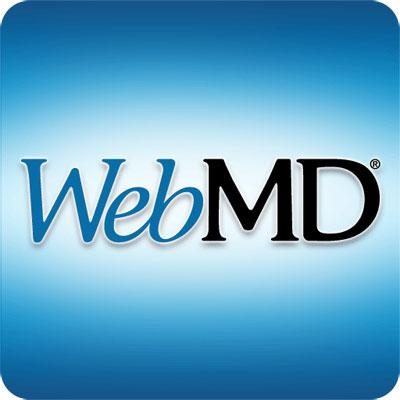Month: December 2014
Au Revoir Riverbed
 Yesterday morning Thoma Bravo, the Chicago-based private equity investor, in concert with its frequent partner, Teachers’ Private Capital, a department of the Ontario Teachers’ Pension Plan, announced its intent to acquire Riverbed Technology (NASDAQ: RVBD) in an all-cash deal that values RVBD at roughly $3.6 billion, or about three times projected 2015 revenue, net of RVBD’s net $43 million cash position, which includes an estimated $80 million for the sale of its cloud storage business to NetApp (NASDAQ: NTAP).
Yesterday morning Thoma Bravo, the Chicago-based private equity investor, in concert with its frequent partner, Teachers’ Private Capital, a department of the Ontario Teachers’ Pension Plan, announced its intent to acquire Riverbed Technology (NASDAQ: RVBD) in an all-cash deal that values RVBD at roughly $3.6 billion, or about three times projected 2015 revenue, net of RVBD’s net $43 million cash position, which includes an estimated $80 million for the sale of its cloud storage business to NetApp (NASDAQ: NTAP).
While we are disappointed to see Riverbed sell to a private equity investor, rather than a company in the software and appliance segment, we note the expertise that Thoma Bravo has developed in the business software and appliance space, which includes its recent tender offer for Detroit-based Compuware, a $2.5 billion transaction announced less than four months ago, as well as previous acquisitions of SonicWall (subsequently sold to Dell), Blue Coat Systems, and privately-held Crossbeam Solutions.
After pre-announcing a modest shortfall in revenue relative to company guidance in each of the last two quarters, Riverbed also announced that it would undertake a strategic review of its options to maximize shareholder value. That announcement was made against the backdrop of an increasingly activist shareholder, Elliot Management, which has held a near 10 percent stake in the company for more than a year. We perceive the deal to have a high probability of closing, given the all-cash nature of the transaction, its approval by Riverbed’s board, as well as Elliot Management.
Notwithstanding a rather short-lived shareholder value maximization process of less than two months, Riverbed has, in a sense, been for sale unofficially ever since Elliot Management made its first $19 per share offer, back in February. With the ability to execute its recently announced restructuring plan out of the limelight, Riverbed, under the aegis of Thoma Bravo, is well on its way to realizing its complete potential.
WebMD Health: a Precarious Prognosis
 With projected 2014 revenues of $574 million and a market cap. of roughly $1.8 billion, WebMD is a leading provider of ad-driven health-related content. Online ad sales, principally to drug companies, account for 80 percent of sales. WebMD also provides private content portals to 100 companies, which account for the remaining 20 percent of sales. These portals provide information, advice, education, and services that enable employees and health plan members to evaluate healthcare benefits, treatment, and insurance options.
With projected 2014 revenues of $574 million and a market cap. of roughly $1.8 billion, WebMD is a leading provider of ad-driven health-related content. Online ad sales, principally to drug companies, account for 80 percent of sales. WebMD also provides private content portals to 100 companies, which account for the remaining 20 percent of sales. These portals provide information, advice, education, and services that enable employees and health plan members to evaluate healthcare benefits, treatment, and insurance options.
With the assistance of new management in the last couple of years, WebMD rekindled growth in its online business in part by reducing ad pricing and offering more flexible business terms, including ad campaigns of shorter duration, as well as targeting healthy lifestyle consumer advertisers and health insurance sponsors. As a result, WebMD’s online ad business rebounded by 11 percent in 2013, following a precipitous 18 percent decline in 2012.
In the last couple of quarters, however, online ad spending growth has begun to decline, due in part to tougher comparisons against last year’s performance, a greater emphasis on mobile advertising, for which advertisers spend less than on full-fledged PCs and tablets, which offer larger screen sizes, and the ability to gain more metrics on user behavior. Although not a single company accounted for more than 10 percent of ad sales in either 2012 or in 2013, WebMD depends on a concentrated customer base of drug companies, and an unspecified contribution from non-pharma brands in its online ad business. Recent and proposed consolidation in the global pharmaceutical business is likely to increase the company’s customer concentration.
WebMD’s private portal business, in which it provides healthcare related information to employers, employees, and health care services providers, contributed 18 percent of sales in WebMD’s Q3, and grew by 21 percent over the prior year, almost entirely due to the Blue Cross Blue Shield Association Federal Employee Program that the company launched at the beginning of 2014. The five million member program is WebMD’s largest-ever contract in this category, although the margin impact is less clear. We note that WebMD does not disclose the gross or operating margins for the private portal business, making it difficult to assess the financial impact of the transaction. Elsewhere within the business trends are not positive. WebMD had 100 private portal customers as of the end of the end of the third quarter of 2014, down from 113 in the prior year.
Key swing factors for the next 12 months include whether WebMD can (1) maintain and/or grow its share in online ad spending by the drug companies; (2) attract more consumer brands and health plan sponsors to advertise on its websites; (3) achieve margin expansion beyond current levels, while investing in new platforms and programs.


